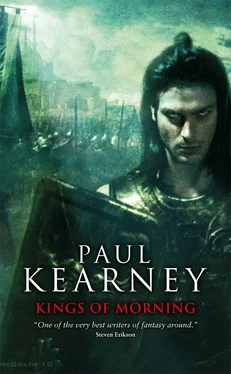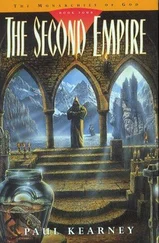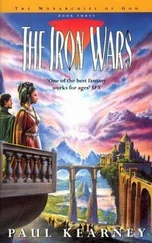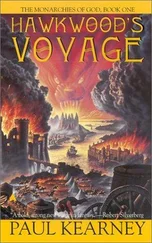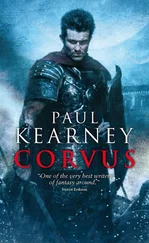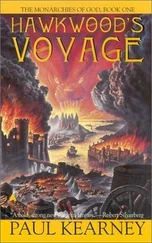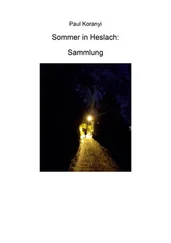Paul Kearney - Kings of Morning
Здесь есть возможность читать онлайн «Paul Kearney - Kings of Morning» весь текст электронной книги совершенно бесплатно (целиком полную версию без сокращений). В некоторых случаях можно слушать аудио, скачать через торрент в формате fb2 и присутствует краткое содержание. Жанр: Фэнтези, на английском языке. Описание произведения, (предисловие) а так же отзывы посетителей доступны на портале библиотеки ЛибКат.
- Название:Kings of Morning
- Автор:
- Жанр:
- Год:неизвестен
- ISBN:нет данных
- Рейтинг книги:4 / 5. Голосов: 1
-
Избранное:Добавить в избранное
- Отзывы:
-
Ваша оценка:
- 80
- 1
- 2
- 3
- 4
- 5
Kings of Morning: краткое содержание, описание и аннотация
Предлагаем к чтению аннотацию, описание, краткое содержание или предисловие (зависит от того, что написал сам автор книги «Kings of Morning»). Если вы не нашли необходимую информацию о книге — напишите в комментариях, мы постараемся отыскать её.
Kings of Morning — читать онлайн бесплатно полную книгу (весь текст) целиком
Ниже представлен текст книги, разбитый по страницам. Система сохранения места последней прочитанной страницы, позволяет с удобством читать онлайн бесплатно книгу «Kings of Morning», без необходимости каждый раз заново искать на чём Вы остановились. Поставьте закладку, и сможете в любой момент перейти на страницу, на которой закончили чтение.
Интервал:
Закладка:
But the bluff worked. Governor Beshan of Carchanis opened his western gates to the invaders and surrendered the city, having first opened the eastern gates to allow the remnants of the Arakosans under Lorka to continue their flight.
Word was sent back to the tented camps around Gaugamesh. The battlefield was to be abandoned, and the entire army was to move up on Carchanish, where the Great King had stockpiled enough supplies to feed it for months. Corvus himself rewarded Beshan for his surrender by allowing him to remain as Governor of the city, but he also appointed a military advisor to help the Kefren administration cope with the change in pace. And to keep an eye on things.
The breakneck pursuit was called off for a few days to allow the bulk of the army to regroup and rest. Around the ancient walls of Carchanis the tented city of the Macht sprang up once more, like a plague of dun mushrooms. But it was not as large as it had been before Gaugamesh.
In his long life, Rictus had known many injuries, and he had learned how to deal with pain. But it seemed to him that the journey in the waggon-bed from Gaugamesh to Carchanis produced the greatest agonies he had ever known. And he did not know why.
His wounds were many, varied and uninteresting. None of them in themselves were even close to fatal, but the combination of them all had brought him as close to Antimone’s Veil as he had ever been in his life.
He travelled in a well-sprung caravan which had been looted from the baggage train of the imperial army. It was superbly made, drawn by four quiet horses used to the traces, and it had a wooden roof painted blue and traced with silver filigree; a line of horses galloping endlessly round and around, their manes flying, their tails curling and tossing. Rictus lay on the rope-hung cot within the cart, sweating sour memories into the linen sheets, and watched those horses go round and around, waiting for death.
He was attended to by an old Kefren physician named Buri, who had been found in the wreckage of the Great King’s army, and who had chosen to help the wounded of his conquerors. He was too old for flight or bitterness or ambition, and Corvus had found him to be an able man. He had set him the task of keeping Rictus alive.
He was aided in this task by Kurun, the hufsan slave-boy, who, it seemed, had taken it upon himself to help the old man heal the Macht marshal. And because the youngster was often in the caravan with Rictus, the crop-headed Kefren princess, Roshana, was there also as often as not.
Buri did not know who Roshana was, and she did not tell him, but he did ask Kurun why the boy wanted to see the Macht veteran live.
‘He helped us once,’ was all Kurun would say, with a shrug of his narrow shoulders. And then he would be out the back door of the caravan, leaping off it as they plodded along in search of firewood or water or fresh linen. He had become an able thief, and the three Kufr in the caravan ate well. Rictus would eat nothing. He would only drink water, as much as any man could hold. It was as if he were trying to flush the dust of Gaugamesh out of his throat.
So it was that when they reached Carchanis, it was deemed a natural thing that apartments be found in the high citadel to accommodate them all close at hand to each other. By that point Rictus was able to sit up, though his raw-boned face had lost its colour and the flesh had fallen from his bones, so that his head seemed too big for his body. Buri’s administrations kept his wounds clean and knitting, and fought off the dank fierceness of a fever; the same that was carrying off hundreds of the other Macht wounded. All the same, Rictus was gone for several days after their arrival in Carchanis, lost in some twilit world where Antimone watched over him and folded him in her black wings. Kurun watched over him day and night, pouring water down his throat and wiping the sweat from his body. And Roshana sat in a corner with her komis over her face and carried water from the fountained courtyard as though she were the servant and old Buri her master.
It was the sound of marching feet and the call of bronze horns which finally roused Rictus from his stupor. The city was full of the sound of an army, but the horns were deep and strange. They did not belong to the Macht, or to the empire. He opened his red-crusted eyes to find Kurun looking down on him, his young face hollow-eyed but cheerful. In Kefren, the hufsan said, ‘Buri, the Macht awakes.’
‘Help me up,’ Rictus told him, knowing the face but not connecting it to any memory as yet. The boy seemed to understand him, but even in his gaunt state Rictus was too heavy to shift. Finally Roshana propped herself under his other shoulder and they helped him out of the bed. He stood naked between them, his body covered with purple wounds and linen dressings, and limped over to the high window.
Into the hot sunlight, the heat of it like a blast of memory. Rictus closed his eyes a moment against the glare, and when he could finally see again he found himself looking down on the serried clay-tile rooftops of a great city, as great as Machran or larger. The buildings of it swooped down with dizzying steepness to walls of pale stone far below, and beyond, a great river, brown as the back of a thrush, crossed by a massive bridge of ancient stonework. Beyond that, the green country of the Middle Empire opened out into a shimmering haze of heat and dust, and beyond that lay the dark blue guess of the Magron Mountains at the edge of sight.
But that was not what caught Rictus’s eyes. It was the dark worms of marching men slowly inching across the green country, blackening the pale roadways to the city with their numbers and their strange banners, the beat of their feet to be heard as a distant blood-quickening drum even up here in the heights of the citadel.
‘Who are they?’ he asked. Again, the boy Kurun understood him, though he spoke in Machtic.
‘They Juthan. Juthan army here. Juthan King here today,’ he said, the words ill-formed in his mouth but perfectly understandable.
‘Where is this?’
‘This Carchanis. Big city. Big river. Enough now.’
They tried to move Rictus away from the tall balconied window, but Rictus was as immobile as a standing stone, staring as though he had just seen the world for the first time.
‘Carchanis,’ he said. ‘The Bekai River.’
And then, in a whisper, ‘Fornyx, my brother.’ He stood there with the two young Kufr under his arms, old Buri beginning to fuss and fret around him, and the tears came dripping from his eyes and trailed down a gaunt face as hard as stone.
There was a banquet that night, to welcome the King of Jutha into the city. Proxanon himself had led his grey-skinned legions clear across the Middle Empire, fighting several battles along the way, but he had missed the great conflagration of Gaugamesh. The long hall which was the centrepiece of the governor’s palace was packed tight and bright with Macht and Juthan, and the city was flooded with them. The evening had been set aside for celebrations, the first Corvus’s army had known since the battle. In the wake of their victory there had been too much to do, too many wounded to take care of, too many details to be rounded off, for there to be any real sense of their triumph. But now that they were ensconced in a rich, civilised city with plentiful provisions to hand and the prospect of some rest to come, the Macht king had declared a holiday. The city was decked out as though for a festival and hundreds of wine-barrels had been roused out of the palace cellars and set rolling in the streets. The smell of roasting meat hung over all, entire herds and flocks of animals slaughtered for a night of largesse, of excess. The men had earned it. They needed it.
The inhabitants of Carchanis, unmolested until now, drew inside their houses and locked the doors and shuttered the windows, while in the streets the wine ran in the gutters and the teeming soldiers grew steadily more raucous.
Читать дальшеИнтервал:
Закладка:
Похожие книги на «Kings of Morning»
Представляем Вашему вниманию похожие книги на «Kings of Morning» списком для выбора. Мы отобрали схожую по названию и смыслу литературу в надежде предоставить читателям больше вариантов отыскать новые, интересные, ещё непрочитанные произведения.
Обсуждение, отзывы о книге «Kings of Morning» и просто собственные мнения читателей. Оставьте ваши комментарии, напишите, что Вы думаете о произведении, его смысле или главных героях. Укажите что конкретно понравилось, а что нет, и почему Вы так считаете.
